BASMACHISM WAS CONTRARY TO THE NATIONAL INTEREST. Reprint of the article by Professor A. Saifulloev from the newspaper Jumhuriyat
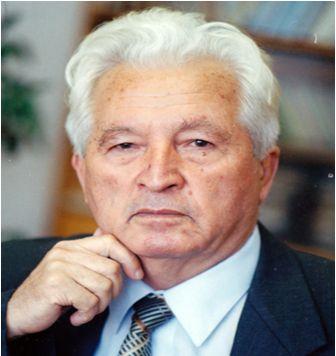
DUSHANBE, 17.01.2019. (NIAT Khovar) – The media sometimes publishes various opinions about the Basmachi movement and Kurbashi. There is an opinion that the Basmachi fight against the Soviet government is a “struggle of the inhabitants of Bukhara against the revolutionaries,” and that the leaders of the Basmachi are “national heroes.” This of course is a one-sided and subjective view of historical events and Basmachis.
The truth is that after Emir Alim Khan’s flight to Afghanistan, the Basmachi arose as an anti-Soviet movement and therefore had taken an anti-Bolshevik character. The Basmachi, whose main goal was the restoration of the Emirate of Bukhara and the return of the Emir, eliminated every sensible person supporting the new power.
Many laborers died in these battles, and therein lies the tragedy. This was a time when workers had nothing to do with the Basmachi and in their hearts they despised them since the Basmachi plundered their property and beheaded all those who did not take their side.
Who were the Basmachi? Firstly, they were former state officials of the Emirate of Bukhara who wanted to return their positions and power through all means. The emir himself writes in his memoirs about Ibrohimbek and Davlatmandbek, the two leaders of the Basmachi movement, who as loyal servants fought for the restoration and consolidation of the Bukharan Emirate: “Mullah Muhammad Ibrohimbek from the Hissor region belonged to the society of Uzbeks in Eastern Bukhara and Davlatmandbek served decently and showed dedication, earning my favor. I called these valiant warriors of Islam to me and informed them that I was moving to Kabul for help. If help comes in time and I return, they and their soldiers must in every way hinder the enemy.”
Ibrohimbek’s father was also one of the government officials of Bukharan Emirate and his name was Chakaboy. Ibrohimbek under the guardianship of his father throughout his youth engaged in theft and robbery. It was Emir Alim Khan who deigned to assign Ibrohimbek the title of Karaulbegi, and then appointed him head of the cannon army and commander. When the emir retired, he organized the Basmachi movement in Eastern Bukhara, which is in the south of present-day Tajikistan. He kept in touch with the runaway emir through letters and his people. He robbed the people and sent large sums to the emir and on his behalf received weapons and ammunition.
Since Ibrohimbek was the head of all Kurbashi and other Basmachis, he met a Turkish general Enver Pasha and his associates as a protege of the runaway emir. In order to restore the emir’s power, Enver Pasha first arrived in Bukhara in 1921 and then he reached Eastern Bukhara. Emir Alim Khan wrote: “Upon learning of this news, I sent a written order to Ibrohimbek to render Enver Pasha the honors and to find out whether he is going to serve the Islamic nation and if there is an affirmative answer, to inform him about our full support.”
Enver Pasha reaffirmed his commitment to the “Islamic nation and together with Ibrohimbek began the war against the Red Army men and the Tajik people. However, Enver Pasha’s true goal was not the defense of Islam and the liberation of Muslims from the Bolshevik yoke. His main goal was to create the Great Sultanic Turkish Empire in Central Asia, Afghanistan, Iran, Transcaucasia, Crimea and Turkey by the assistance of the reactionary forces of Western countries.
Having found a patron in the person of this international opportunist, Ibrohimbek attacked the Hissor region. After capturing the trophy treasury and military equipment, he made Hissor his center. He raided on the Dehnav, Boysun, Ghuzor, Sherobod, Qarshi and robbed, stole and killed. He regularly informed the Emir about his “victories”.
Enver Pasha did not reach his goal and on August 4, 1922, he was killed with the help of residents by the Red Army soldiers in the village of Obdara, in the Khatlon province. Ibrohimbek continued the mass murder and looting with the support of the emir, but he could not stand the successive strikes of the soldiers and volunteer red-rangers. In June of 1926 he fled to Afghanistan. There, he gathered new forces with the help of Alim Khan and his other foreign patrons and in 1931 again raided Tajikistan. He suffered a strong defeat this time too. A detachment from among the people’s volunteer defenders of the homeland led by Muqim Sultan (1894-1975) routed Ibrohimbek’s gand, while Ibrohimbek himself was wounded and taken prisoner in the village of Khojabulbulon on June 23, 1931.
In history and fiction, the Basmachi are presented in different ways. In emir’s memoirs titled Tarikhi huzn — al-milali Bukhara (The History of the Sorrows of Bukharan Residents, Paris, 1927), which was published with the effort of emir’s henchman General Hoji Yusuf Muqimbiy, the Basmachi leaders Ibrohimbek, Davlatmandbek, Abdulqahhor and Enver Pasha were overly praised and exalted.
The work of Muhammad Ali Ibn Muhammad Said Baljuvoni titled Tarikhi Nofei (A Useful History, 1923-1927) is another valuable historical source on the Bukhara Revolution and the Basmachi movement. The author was a witness to the atrocities in Bukhara, the flight of the emir and the expansion of the Basmachi movement. “When Emir Alim Khan was defeated and fled to Hissor, some of the soldiers retreating from the battlefield, started looting and joined the Basmachis the same day. Also, some people, who had fled with the Emir, came back and began to proclaim Basmachism,” he writes.
Among Emir Alim Khan’s henchmen, who had moved with him to Afghanistan and between there to four months returned home, were the Governor of Hissor Avliyoqulbek Devonbegi, Doniyol Inoq, Mullah Abdulhakimi Savlat – Qadi (Judge) of Sherobod, Abdullah Boybacha of Ghijduvon, Murod Pahlavon Paykandi and others. All these people became thieves and Basmachis and robbed the people. “They subjected countries to tyranny in the name of selfish goals by various violent ways and under the threat of weapons,” Muhammad Ali writes.
The author of A Useful History notes two features of Enver Pasha’s activities:
1) Rallying Basmachis around himself.
2) Supplying them with weapons.
“It should be known that when Enver Pasha linked his life with Basmachis, this movement began to expand in the Turkestan region. This represented a great danger to the Soviet authorities, since Basmachism was also growing stronger in the Kashgar province and Afghanistan, and Enver-Pasha was shipping weapons and ammunition from foreign countries. After Enver Pasha’s death, the Basmachi movement was crushed and destroyed,” writes Baljuvoni.
Muhammad Alim Khan concludes his notes saying: “God save our land, Turkestan, from the Basmachi adversity and bloodshed!”
State and public figures who witnessed the excesses, atrocities and ill-treatment of innocent people at the hands of the Basmachi, wrote about them with malice and contempt and emphasized their solidarity with the runaway emir. Abdulqodir Muhiddinov, the first chairman of the Revolutionary Committee of Tajikistan, in his preface to the monograph by Abdurauf Fitrat titled The Reign of Emir Alim Khan (1930) wrote the following: “Enver, Ibrohimbek, Fuzail and other Basmachis acting on behalf of the emir, robbed people and always allocated a share from the stolen and delivered it to the emir. In Kabul, the emir continued to live in luxury and feasted at the expense of his henchmen robbing his people.”
When the Tajik people saw with their own eyes the enormous damage inflicted by the Basmachis, they became convinced of their treason and crimes. With the help of the Red Army, they cleared the Tajik land from this scourge and undermined the economic and political activities of the emir. In the Tajik literature, since the 1920s to the present day, the theme of Basmachism and the disastrous consequences of this movement are covered thoroughly and widely.
Sadriddin Ayni in The Story of the Mangit Emirs of Bukhara (1922) pointing to the reunification of the Basmachi of Fergana and eastern Bukhara describes their atrocities and looting as follows: “The emir’s soldiers, who allegedly advocating for Islam, and the Basmachi of the Fergana Valley, who came to the aid of the emir, began to rob the people of Hissor, which consequently incited their hatred. Therefore, most of inhabitants fled from the devastated cities and villages to the mountains.”
According to Ayni the Basmachis first appeared in Fergana from among the robbers and thieves who robbed when the faithful were engaged in worship. In his articles “Who are the Basmachis of Fergana” (August 1021), “How to Fight Against the Basmachis of Fergana” (1922) and “Theft and Robbery in Samarkand” published in the journal Shulai Inqilob (Ray of Revolution), disclosed the antinational essence of the Basmachi movement and showed the people their wicked face.
“The Basmachi are not the defenders of religion. They don’t advocate for freedom. They are not Mensheviks, but first of all they are insatiable thieves, robbers and bloodsuckers. That is why, since the times of Ergash and Muhammad Aminbek, they still compete and squabble between themselves and commit slaughter. Outwardly, they do not fulfill any of the regulations of the Sharia but rather engage in the seduction of adolescents and rape women and girls, humiliate and violate the rights of the poor and profit from their belongings. Thus, it turns out that they are ordinary thieves and robbers,” wrote Ayni.
Ayni sharply criticized the reactionary society Shuroi Islom (the Council of Islam), which was established in Samarkand by the efforts of the reactionary clergy. It seized the reins of the government in the city and the administration and passed it into the hands of thieves. When these thieves officially stood at the helm of power, they made every effort to commit violence and rob the people. To this end, they entered houses, attacked the city bazaar at the night and devastated the shops. These thieves became Basmachis in Eastern Bukhara.
In his historical novel Dokhunda, Ayni divides Basmachis and describes their unseemly deeds and vile faces: “All the leaders of the Basmachi movement, Ibrohimbek, Fuzail Makhsum, Davlatmandbek, Kurbashi and the leaders of the Basmachi gangs, such as Karakhonbiy, Tagaysari, Abdurahmon Mingboshi, Kur Shermat, Eshon Sulton, Nusratshoh, Abdurahmon Parvonachi and numerous ordinary Basmachis tried to fight to the end, but they were unsuccessful. Some senior officials of the Bukhara People’s Republic joined them, as did foreigners who came from Turkey and had nothing to do with the Tajiks. They were Enver Pasha and his countrymen Karo Kozim Pasha, Salim Pasha, Yusuf Ziyo, Surayo Afandi and others.”
Ayni convincingly shows not only the cruelty and atrocities of Basmachis, but also notes the contributions of the working people in defeating the Basmachis, not bypassing the facts of the violent adherence of the poor people to them.
On the basis of irrefutable arguments Ayni writes: “On the one hand, poor people gathered in groups came and joined the volunteer detachments and on the other hand, some Basmachis from among those who, by coercion or by giving in to persuasion of Kurbashi and the religious clergy joined them, came and voluntarily surrendered their weapons. The position of Ayni in relation to the Basmachis is reflected in the historical novel Ghulomon (Slaves, 1934) and other works.
He also confirms the Turkic roots of Basmachis by the fact that their main leader Said Alim was the last emir of the Mangit Dynasty and their military ranks were also Turkic, for example Ibrohimbek and Abdurahmon Parvonachi were commanders and fighters for the faith, the great Turkic General Enver Pasha, the Commander-in-Chief Somi Pasha, and other Basmachis like Kurbashi, Ellikbashi, Yuzbashi, Mingbashi. In short, all the names are Turkic-Uzbek.
In the poems penned by Lutfi “Salim-partisan” (1938), Javhari “Zafar” (Victory, 1942), a play by Sotim Ulugzoda Kaltakdoroni Surkh (Red-Rangers, 1940), novels by Rahim Jalil Odamoni Jovid (Eternal people, 1949) and Shurob (1956-1967) truthfully described murder, atrocities, robbery, violence and other antinational and antistate acts of Kurbashi Kholbutta, Saidmurod, Ibrohimbek, Saidahmad, Islombek, Mashrab and others who committed them in present day northern Tajikistan.
These writers, like Ayni, lived at a time when the Basmachi movement prevented them from building a new life. This topic was also addressed by Jalol Ikromi in the novel The Deposed Throne, Foteh Niyozi in the novel Do Not Think That the Forest is Empty, Mehmon Bakhti in the play Lahzai Jovid (An Eternal Moment, 1966). In the works of Abdulhamid Samad, Karomatullo Mirzo, Shohmuzaffar Yodgori, in which the action already takes place after the defeat of Basmachis, some of the heroes which come into power acquire the features of the latter-day Basmachis.
We can’t in one article cover the works of all the writers who reflected in their works the history of the origin of the Basmachi movement and its tragic consequences. At the same time, we want to emphasize that aole layer of life is strongly and convincingly reflected in the works of Tajik writers. The historical reality of the Basmachi movement also occupies a special place in the research of historians M. Irkaev, T. Karimov, R. Abdulkhaev and others.
Russian, Uzbek, Turkmen and British scientists also brought irrefutable facts against Basmachism.
Undoubtedly, the writers in their artistic studies on this topic can learn a lot from the works of historians. This is very important in order to get to the truth in all its details.
Sattor Tursun in the novel Three Days of One Spring took a new look at the period during which the Basmachi movement was unfolding and wondered whether all the Basmachis were the same. Of course not, as even Hakim Karim in his stories written in 1930s, argued that some ordinary people, due to their illiteracy, ignorance or fraud, were involved in the Basmachi movement. So, in the story Tuhfa (The Gift) the writer describes a case where several villagers regretting joining the Basmachi, captured Ostonakul Kurbashi and his henchmen and handed them over to the authorities.
It can be assumed that new meaningful works will be created about Basmachism and the struggle of the people against it. Similarly, how new works are being created about Kolchak, Wrangel, Denikin in Russian literature and cinema.
Tajik writers have not yet fully reflected on the true nature of Ibrohimbek, Fuzail Makhsum, Said Ahmad and the like. These Basmachis were not so stupid and unintelligible as they may seem at first glance. They were brave, strong-willed, vigilant and to the same extent, sly, cunning and cruel people. They used any mistake or baseless plans of Bolsheviks against them. But since they did not know military science, they were not familiar with military tactics and strategy and thus were defeated. Moreover, because of their atrocities, the people did not support them. Time proved that neither in life nor in artistic works they can’t be rendered as positive heroes. It is not necessary to strive toward this, because it will bring nothing but harm.
Therefore, Jamoliddin Sobir promptly raised the alarm in his article published in Jumhuriyat on April 30, 2011, when he asked: “For the sake of what do they try to make heroes out of Basmachis? Do those who raise Basmachis on the pedestal of heroism really want to make ‘national heroes’ out of them and their followers, — the Mujahideen of the 1990s? After all, the real instigators of these events gave the fratricidal war of the 1990s the character of ‘the struggle for faith, for freedom,’ and to justify their political games, they affirmed the patriotic and national essence of the Basmachi movement.”
The political individuals who were foreign patrons of Mujahideen, as well as their relationship with local politicians and demagogues during the bloody 1990s in Tajikistan are skillfully described Karomatullohi Mirzo’s third book In Search of Father.
The unseemly acts of 1990s, which led to a senseless war between Tajiks, began with protest rallies of a group of people dissatisfied with the policies of the authorities. Then, the political parties, the so-called “people’s movements” began to emerge. The Democratic Party of Tajikistan and the Rastokhez movement launched their activities. Later, it became apparent from the ranting of some politicians that the Islamic Renaissance Party (IRP) was established 16 prior to that and conducted its activities in mosques. All of them opposed themselves to the Communist Party and the legitimate authority. When Tajikistan declared freedom of speech and conscience as attributes of democracy and permitted the activities of political parties, the newspaper Adolat (published by IRP) was published.
Over time, political opposition forces were formed. Most of them were led from the outside. I remember that a Moscow TV channel had organized a program called Position. Its representative arrived in Dushanbe and filmed a speech by Hoji Akbar Turajonzoda, a Tajik clergy who could judge in a Sharia court. Shortly afterwards, a program was shown, in which a Moscow journalist and Turajonzoda talked about the role of Islam in the development of public and political opinion.
The first president of Tajikistan Kahor Mahkamov was forced to resign under the pressure of leaders and representatives of the IRP, the Democratic Party of Tajikistan and the so-called Rastokhez movement. The representatives of opposition parties in Russia, A. Sobchak and E. Velikhov arrived in Dushanbe from Russia. The session of the Supreme Council of Tajikistan continued, but in the cabinet next to the hall Turajonzoda together with E. Velikhov and A. Sobchak persuaded the ministers and the chairmen of state committees of Tajikistan to resign voluntarily.
They divided people in two squares. People from the Maydoni Ozodi (Square of Freedom) and the Maidoni Shahidon (Martyrs’ Square) threatened and slung mud at each other. The activists in the Maydoni Shahidon blocked part of the central street of the capital and installed their tents there. The movement of transportation was stopped. The leaders of the square called religious fanatics to rob and for armed struggle. They supplied the young trusting people with weapons and said: “You will win, you will be a fighter for the faith, you will die, you will be a martyr for the faith and you will go to heaven.”
In the 1920s, the Kurbashi and the reactionary clergy said the same thing to the young people who had fallen into the Basmachi movement. Everything described above can be regarded as a new form of Basmachism at the end of the 20th century.
Colonel Mahmud Khudoiberdiev’s armed attack of the Tajik Sughd Province from the town Bakhlam, located in the neighboring republic, caused bloodshed in the provincial center and can be regarded as neo-Basmachism. The war started in Tajikistan by the neo-Basmachis claimed the lives of more than 120,000 people and caused the forced migration of more than one million people to Afghanistan. Material and financial damage equaled eight billion dollars. Tens of thousands of workers’ homes along with their possessions were destroyed, 55,000 children were orphaned.
Despite all this tragedy, some ungrateful members of these parties and movements continue to commit terror and murder. This is evidenced by the armed operations of a group of members of the IRP under the leadership of Mullah Abdullo in the Rasht district.
The law enforcement agencies eliminated this criminal group, but ten young people between 17-31 years old were among its dead members. Almost all of them were born in the years of independence. It is clear that the Mujahideen fraudulently handed them weapons. Only thanks to the selfless efforts of the President of Tajikistan Emomali Rahmon with the assistance of the head of the United Tajik Opposition Said Abdullah Nuri peace and national accord were established in our country. As a result, the period of creation and revival began. Peace between Tajiks is a unique event in the history of diplomacy, testifying the power of our young sovereign state.
The signing of a historical document, a General Treaty on the Establishment of Peace and National Accord is a clear manifestation of the new thinking of both parties.
We can see in the example of Tajikistan, the implementation and approval of new thinking in the constructive policy of the state and the government. Isn’t the implementation of economic reforms, including the distribution of 75,000 hectares of land among residents for permanent use, the creation of farms, the issuance of homestead plots to the needy, the establishment of market economy relations and the development of entrepreneurship the fruit of peace?
If the war had not stopped, could our state and government fulfill its strategic goals of ensuring energy and food independence, getting out of the communication deadlock, creating vital objects, bridges, etc? If peace was not established, perhaps Tajikistan would not be officially recognized by 130 states of the world and could not establish friendly relations and cooperation with dozens of countries. Friendship and cooperation, which are the essence of Tajikistan’s foreign policy, are also the greatest values of the world.
We have achieved all this after establishing peace and national accord, starting in the second half of 1997. Therefore, we should be grateful for the establishment of peace and appreciate the tranquility, stability and the creative path of our people.
But, unfortunately, there are certain circles that have not understood the significance of this event and therefore ignore it. Their slanderous voices are heard from everywhere. Although the country has all the conditions for conducting religious traditions and rituals, the religious extremist movements are trying to bring confusion in society. This is evidenced by the illegal activities of the Tahrir Party and the Salafi movement. They are trying to mislead ignorant young people and their short-sighted parents. Some parents enroll their minor children in some foreign religious schools, where they fall under the influence of radically minded pseudo-teachers.
Unfortunately, some of our compatriots, instead of being proud of the achievements of the period of independence, try to bewilder people. Peace, accord and calmness have no values for them. Their goal is to destabilize society and to receive renumeration from their offensive patrons. When many diplomats of foreign countries come to Tajikistan to study the experience of our country, some local immature politicians criticize the creative policy of our government and exalt their “leaders.” This is evidence of their careerism and their intention to seize power. But they do not think about the fact that this can again disturb the peace.
The sayings of the great people of different nationalities and religions, whose goal is the prosperity of the country and the welfare of the people often coincide. On the tombstone of the late President of the United States John F. Kennedy the following words are stamped: “And so my fellow Americans, ask not what your country can do for you, — ask what you can do for your country.”
Every citizen of Tajikistan must also ask himself the following: What have I done to develop my homeland and its future, to strengthen peace and tranquility in my country?
Atakhon SAIFULLOEV,
Doctor of Philology, professor,
The article was published on June 7,
2011 in the newspaper Jumhuriyat











 Tajikistan, Iran Discuss Boosting Direct Investment Cooperation
Tajikistan, Iran Discuss Boosting Direct Investment Cooperation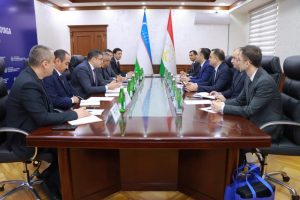 Tajik and Uzbek Anti-Corruption Agencies Discuss Expanding Cooperation
Tajik and Uzbek Anti-Corruption Agencies Discuss Expanding Cooperation Starlink Satellite Internet Launches in Tajikistan
Starlink Satellite Internet Launches in Tajikistan Austrian Company Andritz Hydro Seeks to Expand Cooperation with Tajikistan
Austrian Company Andritz Hydro Seeks to Expand Cooperation with Tajikistan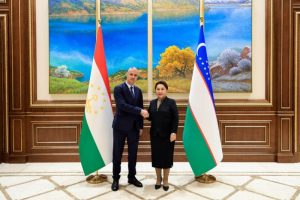 Ambassador of Tajikistan Meets with Chairperson of the Senate of Uzbekistan
Ambassador of Tajikistan Meets with Chairperson of the Senate of Uzbekistan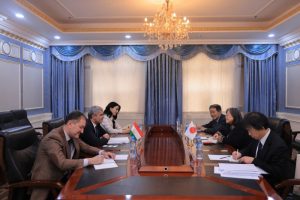 Tajikistan and Japan Discuss Cooperation within Regional and International Organizations
Tajikistan and Japan Discuss Cooperation within Regional and International Organizations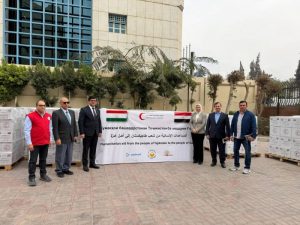 Tajikistan’s Humanitarian Aid to the People of Gaza
Tajikistan’s Humanitarian Aid to the People of Gaza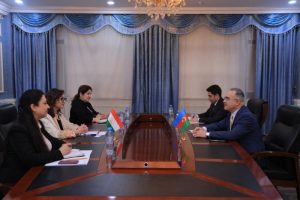 Bilateral Cooperation Between Tajikistan and Azerbaijan Discussed in Dushanbe
Bilateral Cooperation Between Tajikistan and Azerbaijan Discussed in Dushanbe Tajikistan Establishes Data Protection Center to Strengthen Cybersecurity
Tajikistan Establishes Data Protection Center to Strengthen Cybersecurity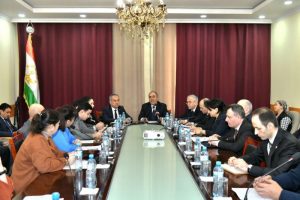 Center for Strategic Studies of Tajikistan Expands International Cooperation Network
Center for Strategic Studies of Tajikistan Expands International Cooperation Network Coins Dating Back to the 1st Century AD Discovered in Tajikistan
Coins Dating Back to the 1st Century AD Discovered in Tajikistan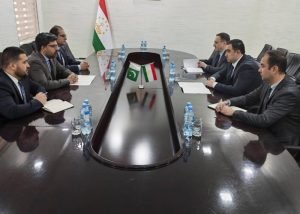 Trade Turnover Between Tajikistan and Pakistan Reaches $43 Million in 2025
Trade Turnover Between Tajikistan and Pakistan Reaches $43 Million in 2025














